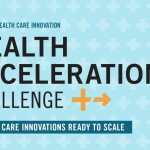 Science fiction author William Gibson famously opined that the future already exists, but that it is unevenly distributed. This notion that in any field there are pockets of excellence is something that was largely popularized by the work around positive deviance conducted by Richard Pascale.
Science fiction author William Gibson famously opined that the future already exists, but that it is unevenly distributed. This notion that in any field there are pockets of excellence is something that was largely popularized by the work around positive deviance conducted by Richard Pascale.
So it’s fascinating to see a new project emerging from Harvard this month that is looking to help surface those positive deviants from the healthcare industry and propagate them as far and wide as possible.
The project emerged from a survey of healthcare industry leaders conducted by researchers at Harvard. They found that the biggest problem was in the dissemination of ideas throughout the industry.
“One thing we’ve learned is that in almost all aspects of health care delivery, there are places that are doing it very well. If we were all doing all these things, we could reduce the cost of health care by 30 percent,” the researchers state.
This finding resulted in the creation of the Health Acceleration Challenge, which aims to both identify innovations in healthcare, and help promote those innovations more widely.
To qualify for inclusion in the challenge, an innovation must be in deployment in at least one setting, with credible evidence that it’s valuable in that environment.
“I really want to emphasize that we want ideas from everywhere,” they say. “You don’t have to be an academic medical center. You don’t have to be from Boston, Los Angeles, or Houston. You don’t need to be affiliated with Harvard. A winning idea could be from anywhere.”
Innovations submitted to the site will be judged on things such as how they impact cost or quality of healthcare, the initial evidence of success, and the extent of the dissemination plans already created. Finalists in the challenge will share a $150,000 prize fund, with each finalists also due to feature in a case study created by the Harvard faculty.
Applications for the competition are open until the 29th September via the website. Each entry is open to the public, with the hope that this will not only solicit feedback from the public, but also allow people to build on what has gone before.
“Sometimes the best ideas on how to improve something that already exists come from someone who doesn’t have related experience,” they say. “Knowledge plus naiveté is a very good combination for innovation.”
You can find out more about the challenge via the video below
That sounds kinda cool. Is it just technological innovation or process innovation too?
I believe it covers both. You'd certainly hope so anyway.